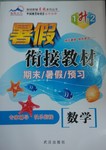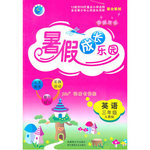题目内容
【题目】阅读下面材料,在空白处填入1个适当的单词或括号内单词的正确形式。
More than 1,250 lit stalls(货摊)brighten the center of Thailand’s capital city, 41 (provide) a multicolored sight. The shelter, 42 is designed for the thousands of traders and shoppers at Bangkok’s night market, has become an 43 (attract) itself.
The market, which 44 (call) Train Night Market Ratchada in English, was opened in January 2015 and has become 45 popular spot for locals and tourists. Software engineer Prasad Ambati visited the market and took the landscape photographs from a nearby car park. "Those 46 (color) tents and people shopping, eating at stalls and the flashing lights were great. The tents made me think of a giant painting."
This is 47 (primary) a market that sells yesteryear(旧时) goods, old-fashioned 48 (collection) of clothes, motorbikes, and second-hand toys. There are also plenty of general market things for sale, 49 cheap clothes, shoes, bags, and other fashion items. But above all it’s one of the best places for street food, open-air bars with live music frequently 50 (perform) all over.
【答案】
【1】providing
【2】which
【3】attraction
【4】is called
【5】a
【6】colo(u)rful
【7】primarily
【8】collections
【9】like
【10】performed
【解析】
【语篇解读】本文是一篇说明文,主要介绍了位于曼谷的夜市Train Night Market Ratchada。
【1】考查非谓语动词。分析句子结构可知,此处应用非谓语动词;provide与其逻辑主语stalls 之间为主谓关系,故用现在分词短语作状语。
【2】考查定语从句。先行词是The shelter,空处引导非限制性定语从句,且在从句中作主语,故用 which。
【3】考查词性转换。根据空前的an可知,此处应填名词attraction "游览胜地,具有吸引力的 事物"。
【4】考查时态和语态。定语从句说的是现在的客观事实,应该用一般现在时;which(指代The market)与call之间是动宾关系,故用被动语态。
【5】考查冠词。spot表示"地点",是可数名词,且此处为泛指,故填不定冠词a。
【6】考查词性转换。根据语境可知,此处指的是"颜色鲜艳的,五彩缤纷的",故填colo(u)rful。
【7】考查词性转换。此处修饰谓语动词,应该用副词,故填primarily。
【8】考查名词复数。空前无冠词或者形容词性物主代词,加之collection"收藏物,收藏品"是 可数名词,故填collections。
【9】考查介词。like意为"像,如",用来列举事物。
【10】考查非谓语动词。此处是"with+宾语+宾补"复合结构。宾语music和perform之间是 逻辑上的被动关系,故用过去分词作宾补。

 暑假衔接教材期末暑假预习武汉出版社系列答案
暑假衔接教材期末暑假预习武汉出版社系列答案 假期作业暑假成长乐园新疆青少年出版社系列答案
假期作业暑假成长乐园新疆青少年出版社系列答案